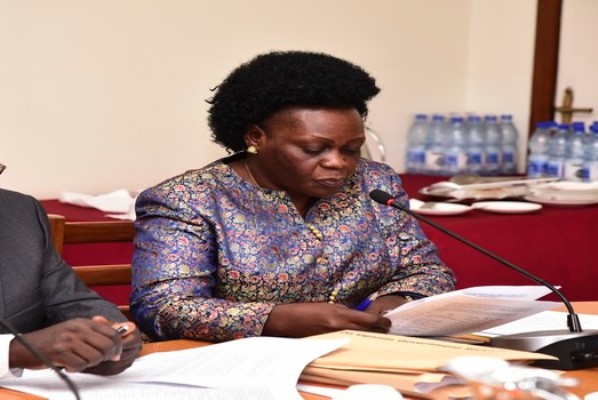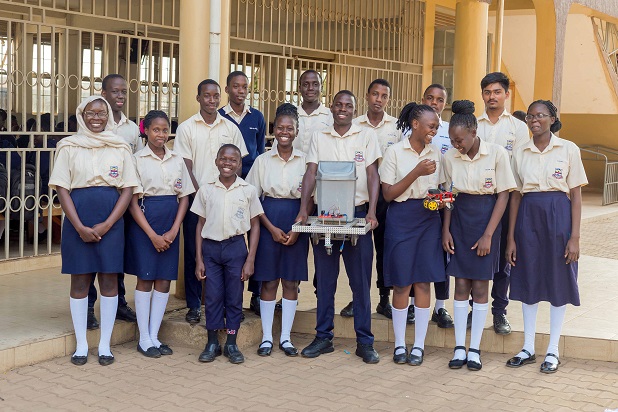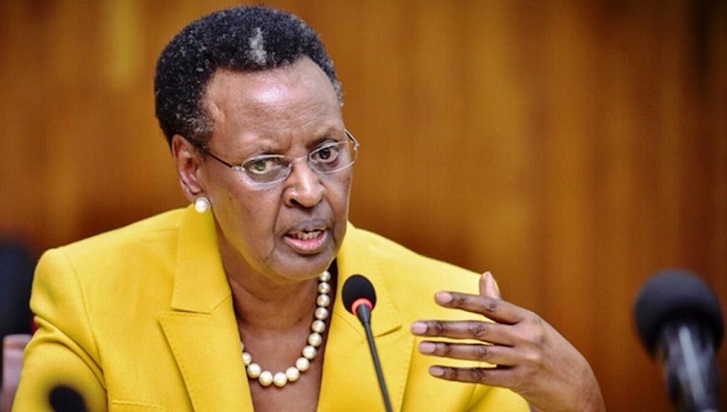Tororo district Woman MP, Sarah Opendi (pictured) is proposing to end the current grading system used by Uganda National Examinations Board (UNEB) for primary pupils, arguing that the current system has exerted too much pressure on heads of schools, thus exacerbating the issue of examination malpractice across the country.
During the plenary sitting on Wednesday, Opendi decried the growing trend in the country where parents think that when a child doesn’t get aggregate 4, they have failed, which she says has left the parents frustrated and forcing school heads to answer questions why their children didn’t score the glamorous 4 aggregates.
“Head teachers are having a lot of pressure from the parents why the child has gotten aggregate 8 or 9. And we are also seeing some of the schools that you know that our cutoff points is 4 or 5. Not every child on this country should get a 4, Opendi said, adding: “I don’t know how many people are here and got aggregate 4. It is making head teachers to start cheating so that school children get a four. Would it not be right for the Ministry of Education to look into this matter and end the issue of aggregates, consider divisions?”
However, one of the parents Isaac Senabulya, opposed the proposal brought by Opendi arguing that schools have taken up the habit of charging parents and guardians exorbitant fees, which only makes it right for the parents to demand for the good results as value for their money.
“I see the MP’s argument isn’t right because schools tell us to pay a lot of money and therefore, parents should demand from these schools to give quality education for their children so that they get 4aggregates at primary level and they get value for money of what the child has invested in their child. So this issue of MPs saying parents shouldn’t put pressure on schools shouldn’t arise,” said Senabulya.
While releasing the results last week, Daniel Odongo, Executive Director of Uganda National Examination Board, said a total of 811,810 students sat for the examinations out of the 832,654 pupils that registered for exams.
Of these, 114,617 passed in first grade, 357,799 passed in grade two, 146,583 in third grade, and 95,702 passed in fourth grade. According to UNEB statistics, 97,109 candidates were not graded, meaning that 714,702 out of 811,810 students who sat for the examinations had passed to proceed for secondary education.





